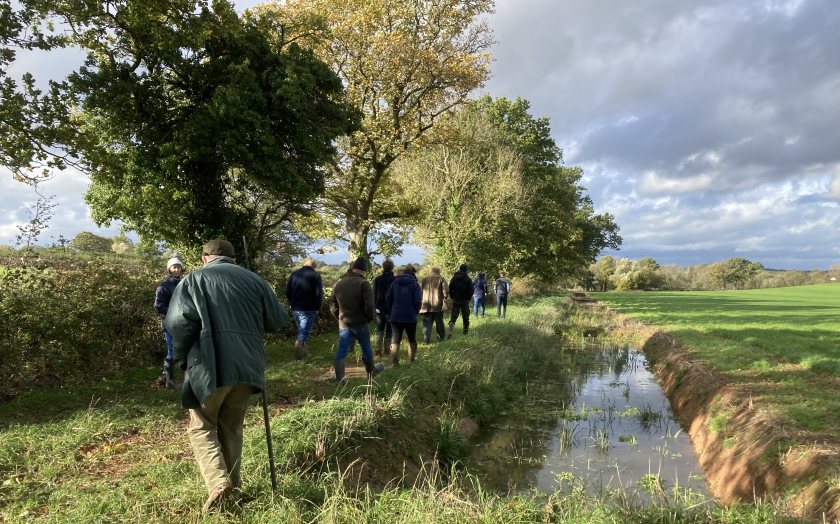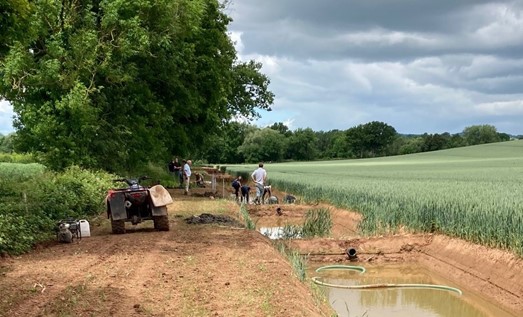Project to radically improve how poultry farm interacts with environment

A new project is underway to radically improve how a Herefordshire poultry farm interacts with the local environment.
The joint wetland venture between Noble Foods and the Wye & Usk Foundation (WUF) aims to help slow the flow of water from the farm, improve water quality and reduce flood risks.
It’s a nature-based solution seen as a win-win for all stakeholders: for farmers, the environment, local wildlife and for improving biodiversity.
The WUF are conserving and improving the habitats of the rivers Wye and Usk, including their catchments, tributaries, watercourses and estuaries.
In turn, the Foundation hopes to protect and enhance indigenous species of animal and plant life.
The region is home to many meat and egg farms, and it’s hoped – over time – that more nature-based solutions will be implemented by producers in the area.
Home to an RSPCA Assured happy egg co. farm, Upper Moorend Farm, owned by the Orgee family, was an ideal location to trial the wetland.

The creation of this nature-based solution is designed to deliver several environmental benefits, with the three key benefits being:
Improved water quality
• The pools also provide additional benefits by trapping traces of excessive nutrients and reducing nutrient load of the water before it reaches the nearby brook. The plants chosen have nutrient-hungry properties, especially for the nutrient phosphorus, which is a particular concern in the Wye catchment. The system has been designed to provide the longest possible retention time in each pool to allow time for the plants to do their work.
Natural flood management
• To increase the capacity of Upper Moorend’s current attenuation pond, the series of 11 wetland pools is now linked together. The new vegetation in the pools will physically slow down the flow of water through the system and provide extra capacity to store excess water in heavy downpours, releasing it slowly once peak flow has passed.
Improved biodiversity and habitats
• The 11 pools have been planted with 12 different species of vegetation and grasses. They will colonise with other plants from the surrounding area, to form a new, vibrant habitat. The pools will be a varied habitat, providing forage for birds and nectar for pollinators and insects and an aquatic habitat for amphibians and a water source for other wildlife.
• It’s also anticipated that the vegetation will spread rapidly to cover the water surface, which will greatly reduce the attraction for other waterfowl. A key measure to deter the spread of avian influenza.








